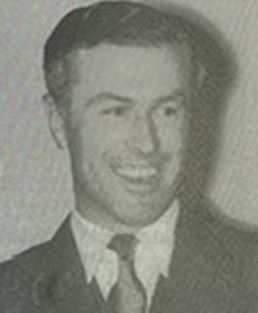Henry Howard was an officer of outstanding bravery who had the gift of leadership by example and a direct experience of warfare at the sharp end remarkable for both its diversity and duration.

He was commissioned from Sandhurst in 1935 into the Buffs, his grandfather’s Regiment, and in 1936 was commanding a platoon in Palestine which came under heavy fire from a large group of Arab dissidents. Although wounded in both thighs he led his platoon to capture and hold the enemy position and was awarded his first MC.
At the outbreak of war in 1939, he was serving with the King’s African Rifles and was mentioned in despatches for his work in the campaign which resulted in the defeat of the Italians in East Africa.
At the end of 1941, he joined 1 Buffs in the desert and apart from short spells at the Middle East Staff College and with the Transjordan Frontier Force, stayed with them throughout the fighting in North Africa, including El Alamein and Mareth until final victory in Tunis. On many occasions, he distinguished himself by leading attacks and carrying out aggressive patrolling and gained a bar to his MC.
This was followed by command of the 1st Battalion of the Oxfordshire and Buckinghamshire Light Infantry throughout the fighting in North West Europe where his cheerfulness, leadership and personal example ensured success and were recognised by the award of the DSO.
In 1946 Henry relinquished command of the 2nd Reconnaissance Regiment in Singapore, said goodbye to his pet pigmy elephant and joined the 3rd Hussars in Palestine for the often arduous, frequently dangerous and invariably thankless task of attempting to keep the peace. It was at once apparent that we had acquired an officer of great charm and ability with an impressive war record, who had a highly independent mind and an engaging streak of eccentricity. He led his squadron with a light touch, great good humour and complete efficiency.
After instructing at the Naval Staff College he became 2IC in Germany. It is probable that peacetime soldiering in BAOR was an anti-climax to his many years of intensely active life. He had an excellent talent for debunking sacred cows and a sense of humour that his seniors often did not appreciate; a state of affairs which caused him very little concern. His last appointment in the Army was to command the Tactics School at Lulworth. An excellent instructor, he had the ability to make his students think for themselves, see the essentials of a problem and express themselves logically and concisely.
In 1952 Henry married his cousin Jean, the daughter of Lady Congleton, the Laird of Ulva. He bought the adjacent island of Gometra and retired in 1955 to spend the rest of his life in an existence which was a complete contrast to what had gone before. It was said of him that he spent much of the first part of his life witnessing one man’s best attempts at creating hell and the second half enjoying one of nature’s best attempts at showing us the spirit of heaven.
There were four children and Gometra soon gained a fine reputation as a producer of top-quality sheep, cattle and Shetland ponies. He loved the sea, shot, fished, was held in great affection and respect by all and took enormous pleasure in his garden. It was there that he died, suddenly, without pain or suffering, on a perfect May morning.
Henry will be greatly missed. He was a character and one always felt better for seeing him. Our deepest sympathy goes to Jean and his family.


